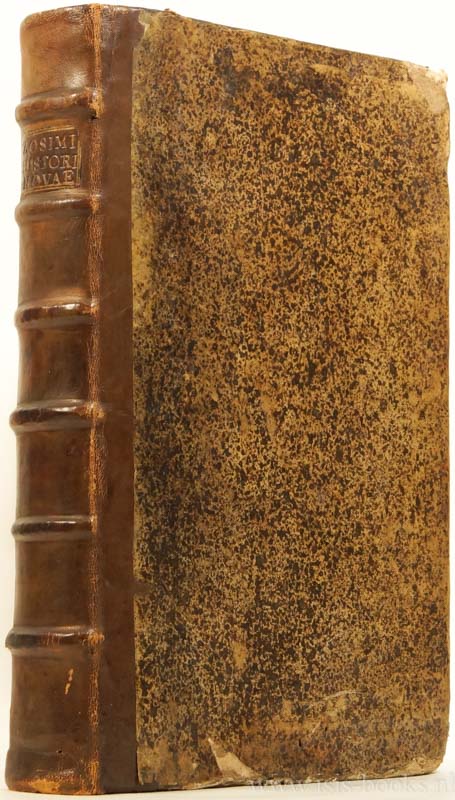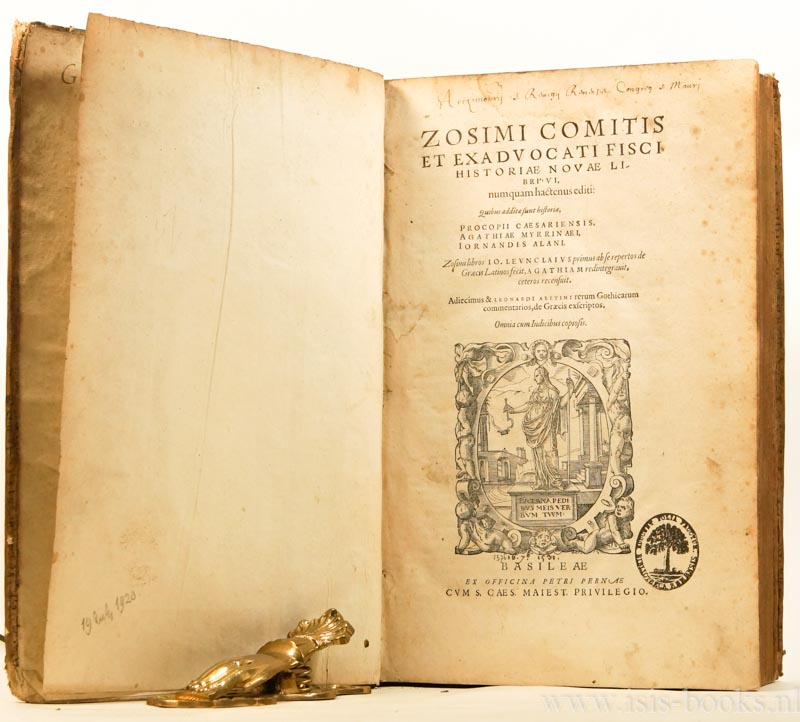OK
OK Cancel


ZOSIMUS
Zosimi comitis et exadvocati fisci. Historiae novae libri VI, nunquam hactenus editi: quibus additae sunt historie Propcopii Caesariensis, Agathiae Myrrin Aaei, Iornandis Alani. Zosimi libros I O. Levnclaivs primus ab se repertos de Graecis Latinos fecit, Agathiam redintegrauit, ceteros recensuit. Adiecimus & Leonardi Aretini rerum Gothicarum commentarios, de Graecis exscriptos. Omnia cum indicibus copiosis.
Basel, Petri Pernae, (1676?).
Printer's device on titlepage. Halfleather binding with marbled frontboard and gilted bookblock. *marbled boards a bit damaged, edges and paper verso frontboard slightly damaged, small annotation in old ink and librarystamp on titlepage, titlepage slightly spotted, spine a bit damaged, otherwise in good condition*
3 written dates on titlepage: 1531, 1576, 1676. Latin text
Zosimus (Greek: zosimos]; fl. 490? 510s) was a Greek historian who lived in Constantinople during the reign of the eastern Roman Emperor Anastasius I (491-518). According to Photius, he was a comes, and held the office of "advocate" of the imperial treasury.[1] Zosimus was also known for condemning Constantine's rejection of the traditional polytheistic religion.
Zosimus' Historia Nova (New History) is written in Greek in six books. For the period from 238 to 270, he apparently uses Dexippus; for the period from 270 to 404, Eunapius; and after 407, Olympiodorus. His dependence upon his sources is made clear by the change in tone and style between the Eunapian and Olympiodoran sections, and by the gap left in between them. In the Eunapian section, for example, he is pessimistic and critical of Stilicho; in the Olympiodoran section, he offers precise figures and transliterations from the Latin, and favors Stilicho.[2]
The first book sketches briefly the history of the early Roman emperors from Augustus to Diocletian (305); the second, third and fourth deal more fully with the period from the accession of Constantius Chlorus and Galerius to the death of Theodosius I;[1] the fifth and sixth cover the period between 395 and 410, when Priscus Attalus was deposed; for this period, he is the most important surviving non-ecclesiastical source. The work, which breaks off abruptly in the summer of 410 at the beginning of the sixth book, is believed to have been written in 498?518.
Boeknummer 638146 € 400.00






